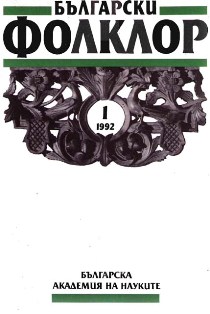Народната култура на Югоизточна Европа в модерното време
Folk Culture of South-East Europe in the Modern Times
Author(s): Klaus RothSubject(s): Anthropology
Published by: Институт за етнология и фолклористика с Етнографски музей при БАН
Summary/Abstract: South-East Europe is a specific cultural region. This is determined by its peripheral position, as well as the additional marginalization enlarge areas as a result of the rapid urbanization and workers’ migration toward Central and West Europe. The co-existence of three layers – traditional folk culture, folklorism and everyday culture – is typical of the folk culture of South-East Europe. All these also originate the peculiarity of South-East Europe in its identification as “European”, as well as of the expanding here “civilizational” (after Elias) cultural processes. In order to rationalize them in full value a change should be undertaken in the research paradygm of South-East European ethnology. The author pleads for its setting free from the considerable ideological (socialist) ballast, and for leaving the restricted village community as a subject and conceptual model of folklore and widely turning to everyday life. Special attention should be paid to the study of the city/town, of the urbanization and more generally, the innovation processes in their South-East European specificity. The stress is put on the ethnical, regional, religious etc., cultural variety of the region, too. Science has to make a gradual transition towards cultural analysis of reality, with direct subject orientations, and in this sense to immediately take part in resolving a number of economical, social, political and cultural problems. The author names some of them.
Journal: Български фолклор
- Issue Year: XVIII/1992
- Issue No: 1
- Page Range: 38-48
- Page Count: 11
- Language: Bulgarian
- Content File-PDF

